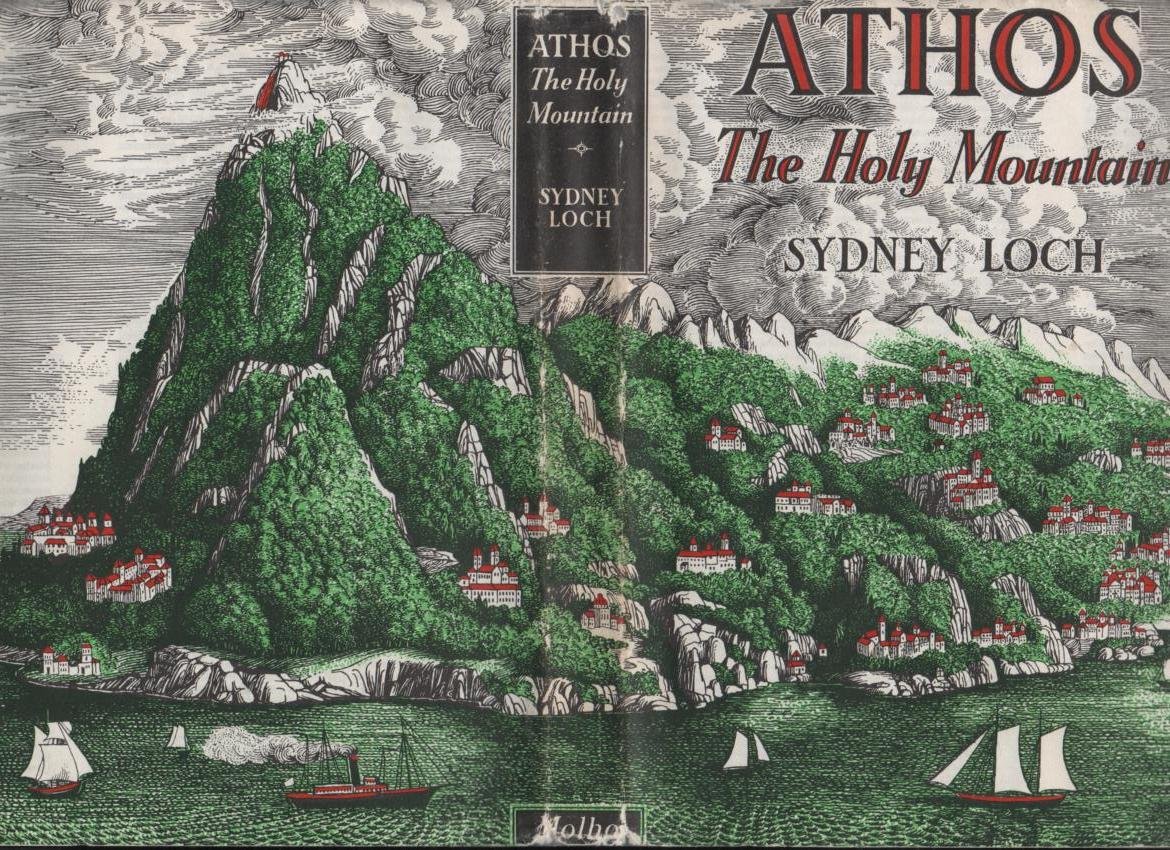The author of Athos, the Holy Mountain, was a widely travelled Scotsman. At the age of 17 he went to Australia and joined the Australian army at the beginning of the First World War. After 1918 he was in Poland, involved with the relief and the reconstruction of the devastation caused by the war.
During the exchange of populations following the Treaty of Lausanne in 1922, Sydney and his wife were involved with aid work in Thessaloniki.
In 1928 the Lochs settled in the tower in the village of Prosphori (now the town of Ouranopolis) where they worked to help improve the conditions in the village.

Sydney Loch was asked to help refugees during the Second World War. This time it was those fleeing the Nazis. He escorted thousands of displaced persons, Poles and others, to Palestine where he set up a refugee camp at Haifa. When Sydney Loch returned to Greece in 1944, the country was embroiled in a civil war. Once again, he immersed himself in philanthropic work and was to be found taking supplies to villages behind the Communist guerrilla lines.
Over twenty-five years Sydney Loch became extremely well known on the Holy Mountain. He presents a vivid picture of the people he encounters and through them, tells of the monks labouring in the olive groves and vineyards; of the historical benefactors of the monasteries; how some of their treasures were acquired, and hymns inspired; the traditions of sacred sites and of the holy men who are venerated as saints. He encounters fishermen, boatman, beggars and muleteers as well as monks and pilgrims. These latter he views as tourists and sightseers. He visits many, perhaps most, of the monasteries usually with a purpose, to return a book or to discuss supplies or negotiate exchanges of produce.
This book provides a very useful background to Mount Athos at the time that St Silouan, St Paisios, St Sophrony and Elder Joseph were first on the Mountain before the monasteries began to flourish again to what is found there now.
The author chose “to attempt to record the heart of Athos through the everyday life… that heart started to beat at the dawn of Christianity… it remains today as it was when, full of zeal at the direct message of Christ, monks crept into the caves and became the first hermits. Today the zeal is still there, but statesman, kings and generals no longer desert thrones to become monks.”
